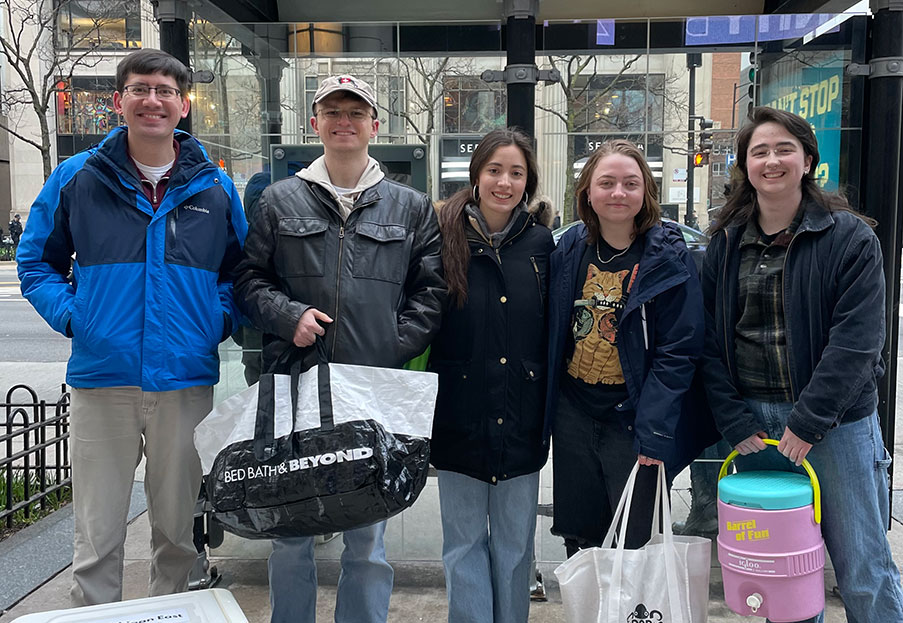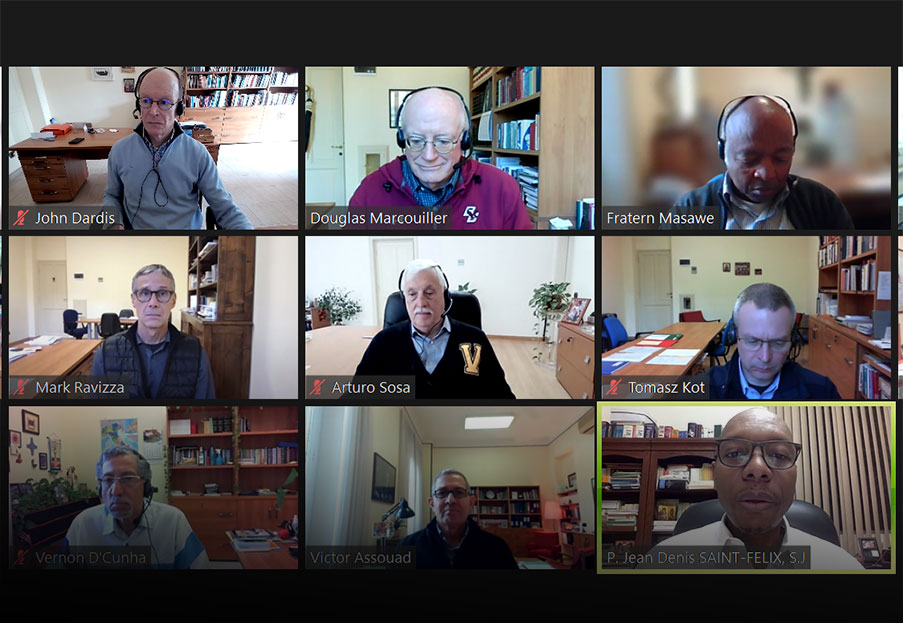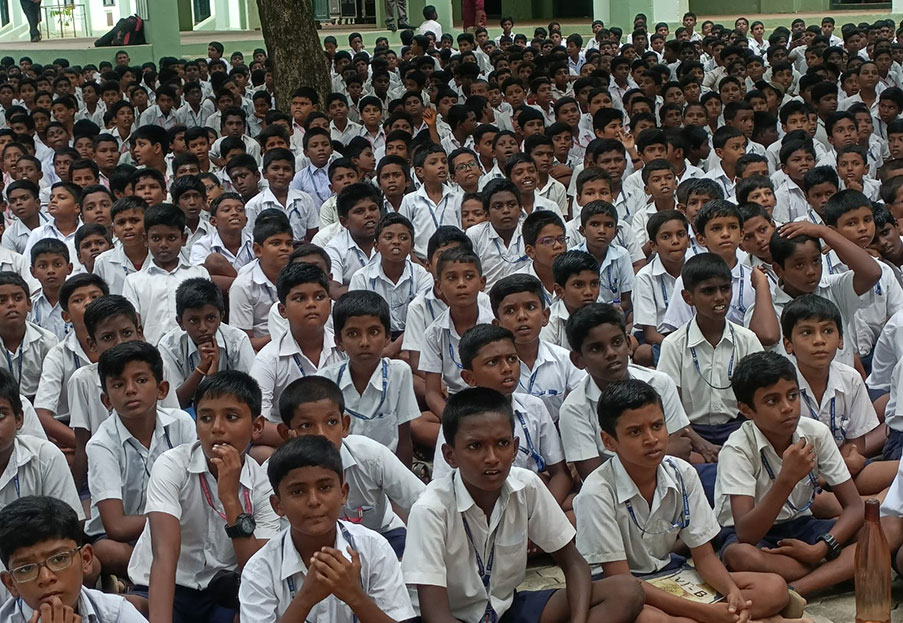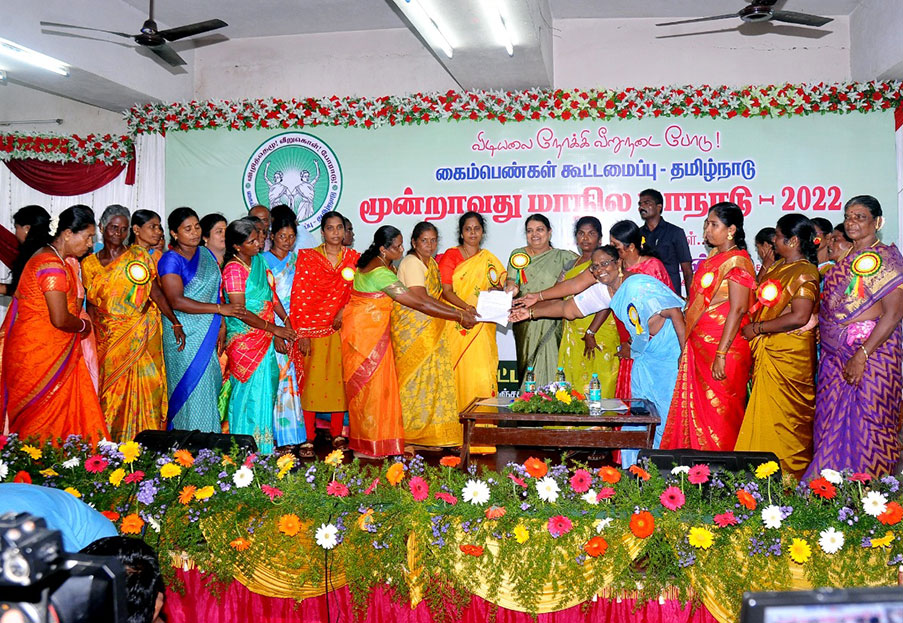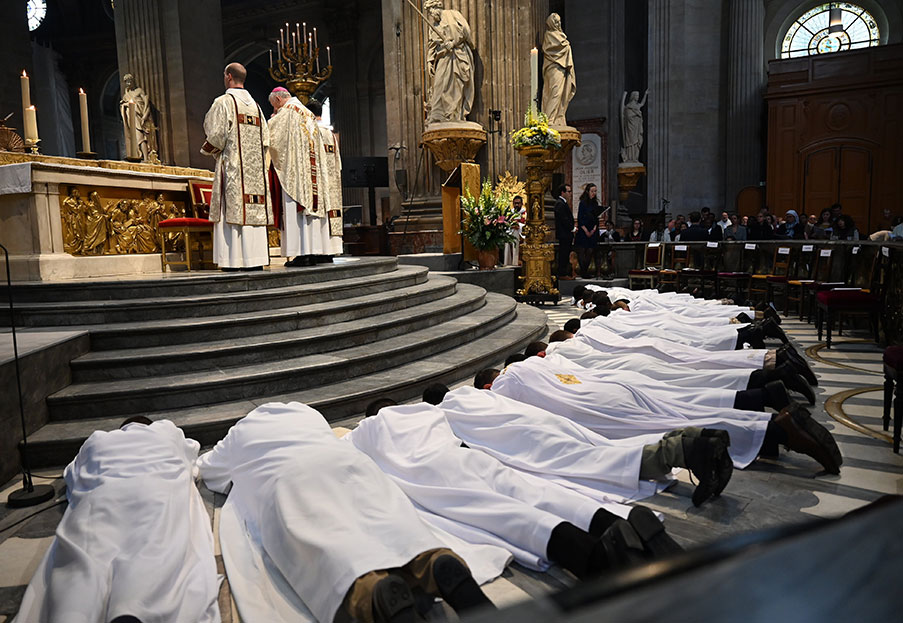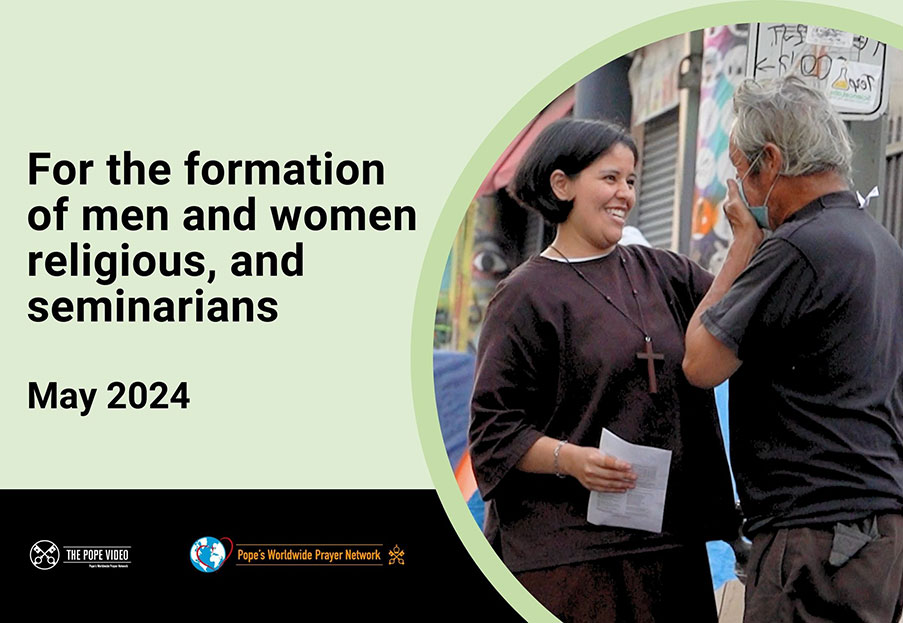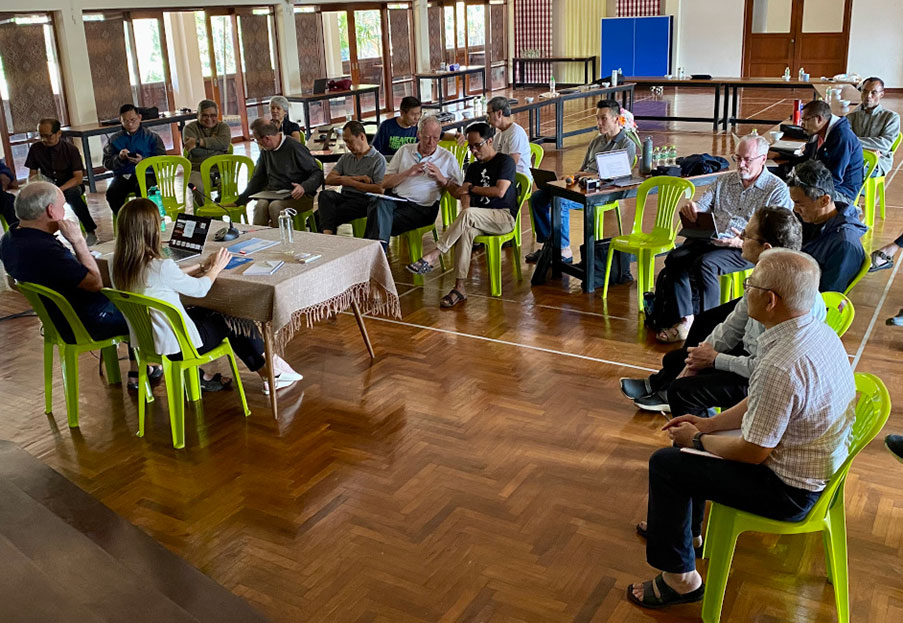JRS nurtures the potential of young talent among refugees
Jill Dzrewiecki; Percy Chikwela; David
Holdcroft, SJ - JRS International
[From “Jesuits 2023 - The Society of Jesus in
the world”]
Gender-responsive education programmes that address gender barriers to education.
Divine grew up in the Dzaleka refugee camp in Malawi. She is the second of six children. Growing up with the complexities of living in a refugee camp was compounded by a strict stepfather who did not value girls’ education. Her father died before she was born, and her mother’s new husband insisted that Divine perform housework rather than go to school.
Despite this, her mother encouraged her to
pursue her education, and Divine was able to move to her uncle’s house and
enrol in school away from the camp. She excelled and progressed to secondary
school. “My uncle was so impressed by how well I did that he agreed to pay for
my form-one school fees,” Divine said. She thrived and life became easier: but
during her third term, her uncle was killed in a car accident. She returned to
the Dzaleka camp with no prospects of continuing her education.
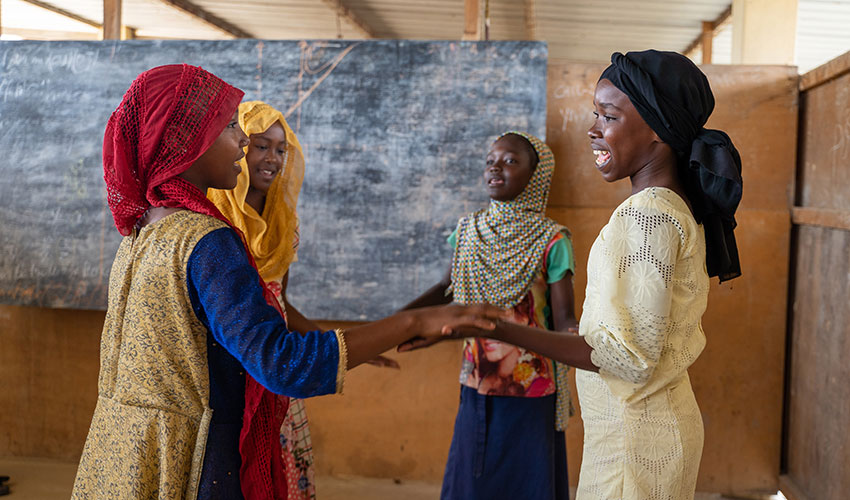
Some grim statistics
Of the 82.4 million forcibly displaced people 34.6 million - or forty-two percent - are under the age of eighteen, while young adults between nineteen and twenty-four make up a large part of the remainder. Also, eighty-six percent of the world’s displaced are hosted in low- or middle-income countries. This places huge stress on education systems in environments that are poorly resourced in some of the world’s poorest areas. Only thirty-four percent of the world’s refugee youth study at secondary school, while five percent enter any form of post-secondary education.
Refugee girls face disproportionate challenges
to receiving an education. They are extremely vulnerable to early marriage and
pregnancy and are subjected to socio-cultural traditions and gender roles that
limit their educational opportunities. Like Divine, many refugee girls are
expected to perform domestic chores.
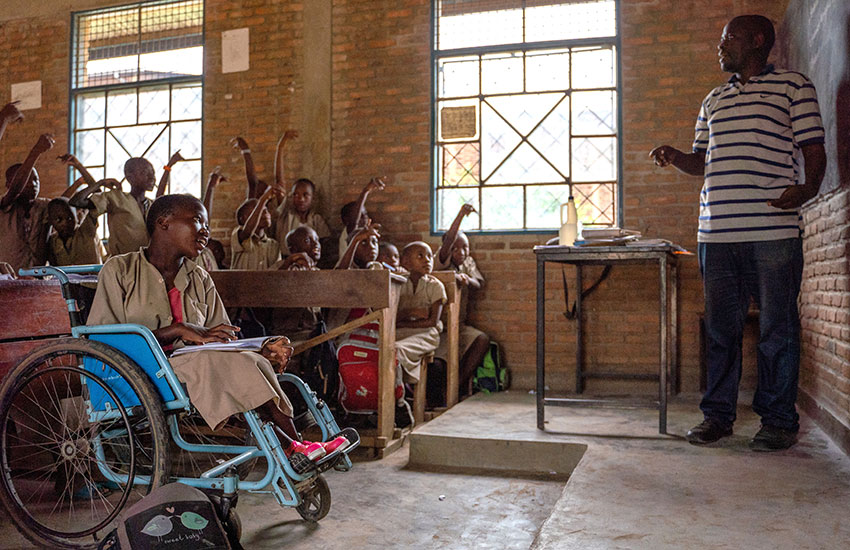
The power of education
Yet education is a lifeline for girls living in displacement. When girls in conflict-affected settings complete secondary education they develop leadership skills, become income generators and build self-reliance. When girls are given the opportunity to fulfil their potential, they contribute to the well-being of their families and communities. This is why JRS is committed to keeping girls in school. In partnership with other organisations, JRS offers gender-responsive education programmes that address gendered barriers to education and enable refugee girls like Divine to invest in their future.
Divine’s mother refused to let her daughter quit on her education. She asked some friends for help, and in time the whole community ended up supporting Divine, who was able to finish her secondary education.
Divine’s hard work earned her high scores,
particularly in math and science. She had a love for science that drew her into
the field of nursing. When it came time to prepare for university, she was introduced
to JRS’s Naweza Project, a girls’ education initiative in partnership with the
Fidel Götz Foundation: Naweza provided Divine a scholarship to pursue nursing
studies. Then during the lockdowns caused by the pandemic the project provided
scholarship students like Divine with laptops and internet bundles that allowed
them to follow online courses.
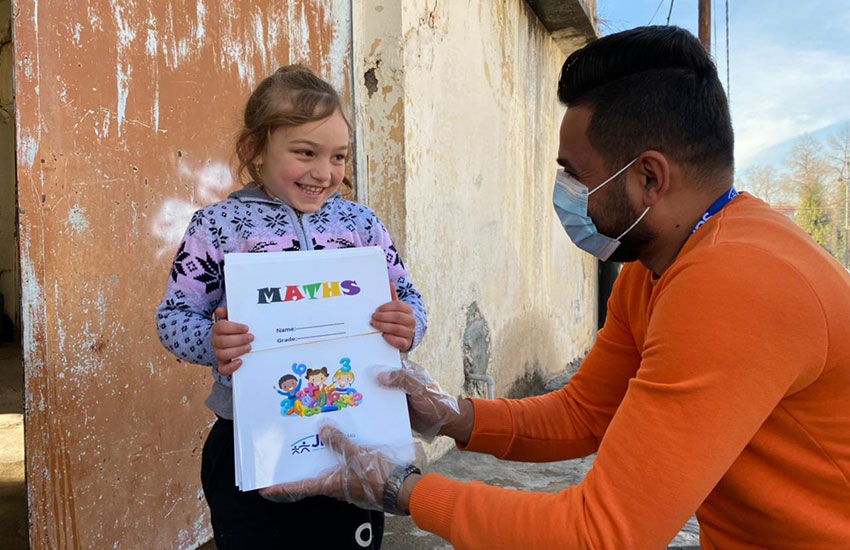
Courses for school leavers and Digital Inclusion
As well as scholarships, JRS provides courses for school leavers as part of its Pathfinder program. These equip young people with in-demand professional skills after which they are assisted into internships and jobs. One of these courses is Digital Inclusion, which is offered in collaboration with French NGO Konexio, gives students the technical knowledge needed to obtain jobs such as data entry, translation and graphic design online and to earn an income.
Immaculée tells the story that the same day she finished Digital Inclusion, she got a job. “Life changed completely,” she says. “I am able to support my sister and myself, and I really enjoy my work.”
The opportunity to work and be self-reliant is
one of the most effective ways for young refugees to rebuild their lives and
make a positive contribution to their communities. “My dream is to be a woman
who inspires and encourages others. That’s all.” Immaculée helps refugees
around the camp, whether they lack basic needs or need some company. She
encourages everyone to learn, and she shares her knowledge with others so they
can also become independent.
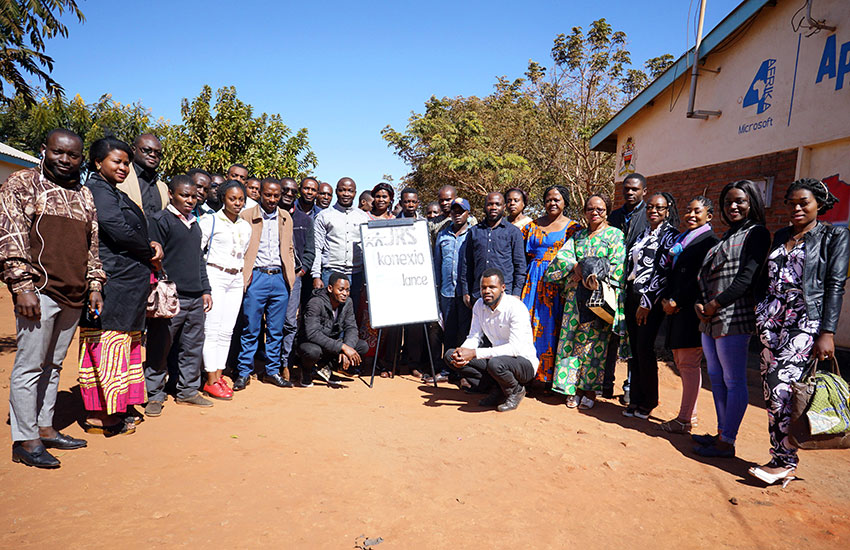
“The training I underwent in the Digital Inclusion Program made it possible for me to get a job beyond borders despite my geographic, legal and social status limitations. Now I feel confident and empowered, and I have the hope for the future,” she says.
JRS-Pathfinder is now present in four countries
and is part of a growing network of post-secondary education for refugees who
sometimes have not completed secondary education and have very limited
opportunities for professional training. Through programs like Naweza and
Pathfinder, JRS is helping realize the enormous potential of young talent among
refugees while raising their living standards and meeting the need for skills
in the emerging world. And in doing this, JRS is helping people to rebuild
their trust and faith in themselves, their communities and ultimately in God.
